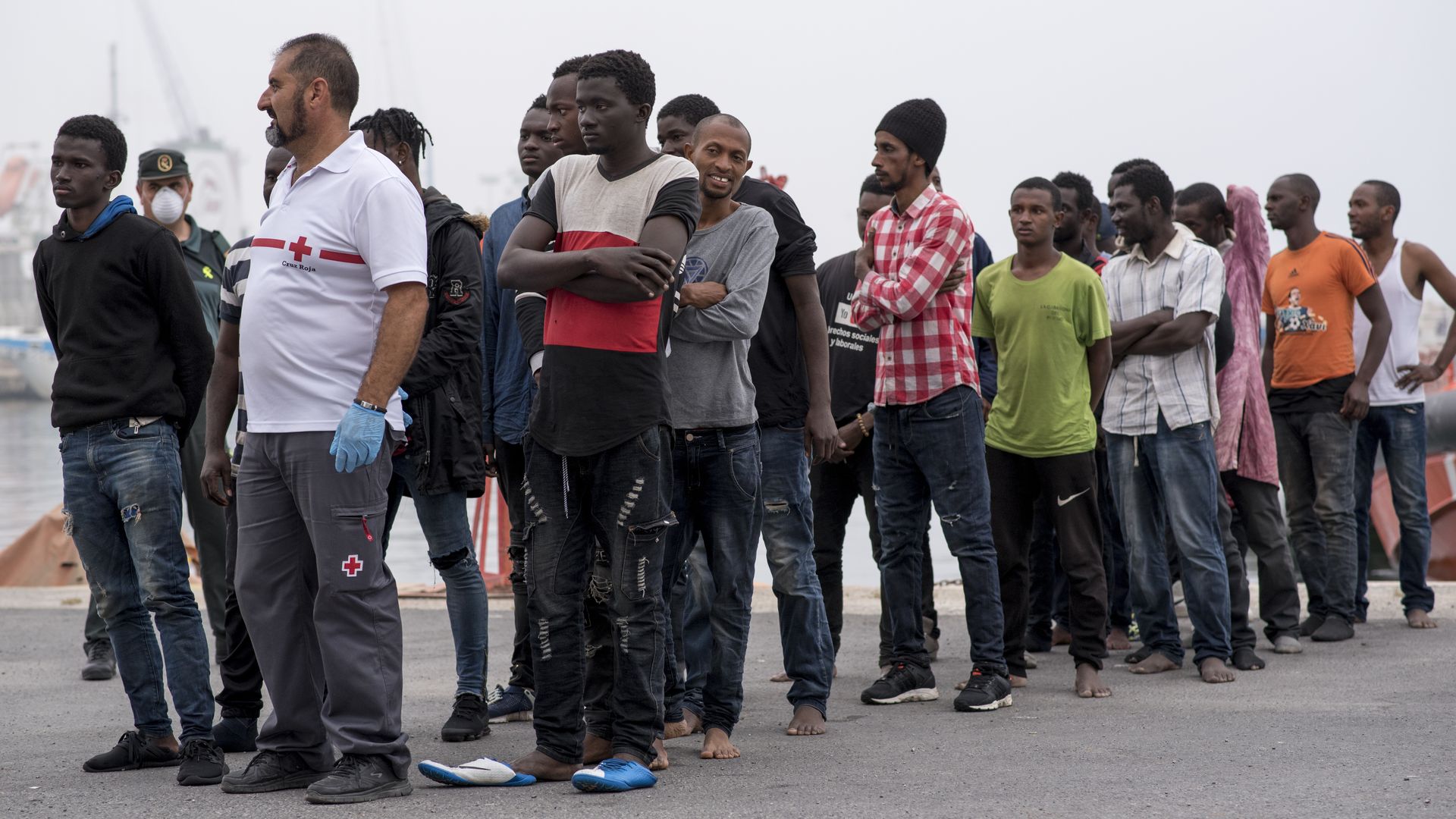Jun 17, 2018 - Politics & Policy
Hundreds of migrants arrive in Spain after Italy, Malta shun them
Add Axios as your preferred source to
see more of our stories on Google.

Migrants who were rescued by Spanish authorities. Photo: Carlos Gil/SOPA Images/LightRocket via Getty Images
